WA S H I NGTON’S
FAREWELL ADDRESS
TO THE PEOPLE
OF THE UNITED STATES
106TH CONGRESS 2ND SESSION
SENATE DOCUMENT
NO. 106–21, WASHINGTON, 2000
INTRODUCTION
Prepared by the United States Senate Historical Office
In September 1796, worn out by burdens of the presidency and attacks
of political foes, George Washington announced his decision not to seek
a third term. With the assistance of Alexander Hamilton and James
Madison, Washington composed in a “Farewell Address” his political
testament to the nation. Designed to inspire and guide future genera-
tions, the address also set forth Washington’s defense of his administra-
tion’s record and embodied a classic statement of Federalist doctrine.
Washington’s principal concern was for the safety of the eight-year-
old Constitution. He believed that the stability of the Republic was
threatened by the forces of geographical sectionalism, political faction-
alism, and interference by foreign powers in the nation’s domestic af-
fairs. He urged Americans to subordinate sectional jealousies to com-
mon national interests. Writing at a time before political parties had
become accepted as vital extraconstitutional, opinion-focusing agen-
cies, Washington feared that they carried the seeds of the nation’s de-
struction through petty factionalism. Although Washington was in no
sense the father of American isolationism, since he recognized the ne-
cessity of temporary associations for “extraordinary emergencies,” he
did counsel against the establishment of “permanent alliances with
other countries,” connections that he warned would inevitably be sub-
versive of America’s national interest.
Washington did not publicly deliver his Farewell Address. It first ap-
peared on September 19, 1796, in the Philadelphia Daily American
Advertiser and then in papers around the country.
In January 1862, with the Constitution endangered by civil war, a thou-
sand citizens of Philadelphia petitioned Congress to commemorate the
forthcoming 130th anniversary of George Washington’s birth by provid-
ing that “the Farewell Address of Washington be read aloud on the morn-
ing of that day in one or the other of the Houses of Congress.
”
Both houses agreed and assembled in the House of Representatives
’chamber on February 22, 1862, where Secretary of the Senate John W. Forney
“ren-dered 'The Farewell Address’ very effectively,” as one observer recalled.
The practice of reading the Farewell Address did not immediately be-
come a tradition. The address was first read in regular legislative ses-
sions of the Senate in 1888 and the House in 1899. (The House continued
the practice until 1984.) Since 1893 the Senate has observed
Washingtons birthday by selecting one of its members to read the
Farewell Address. The assignment alternates between members of each
political party. At the conclusion of each reading, the appointed sena-
tor inscribes his or her name and brief remarks in a black, leather-
bound book maintained by the secretary of the Senate.
The version of the address printed here is taken from the original of
the final manuscript in the New York Public Library provided courtesy
of The Papers of George Washington. The only changes have been to
modernize spelling, capitalization, and punctuation.
[
1
]
WASHINGTON
’
S FAREWELL
ADDRESS
To the people of the United States
❧
Friends and Fellow-Citizens: The period for a
new election of a citizen to administer the execu-
tive government of the United States being not far
distant, and the time actually arrived when your
thoughts must be employed in designating the per-
son who is to be clothed with that important trust,
it appears to me proper, especially as it may con-
duce to a more distinct expression of the public
voice, that I should now apprise you of the resolu-
tion I have formed, to decline being considered
among the number of those out of whom a choice
is to be made.
I beg you at the same time to do me the justice to
be assured that this resolution has not been taken
without a strict regard to all the considerations ap-
pertaining to the relation which binds a dutiful citi-
zen to his country—.......
......
Towards the preservation of your government
and the permanency of your present happy state, it
is requisite not only that you steadily discounte-
nance irregular oppositions to its acknowledged au-
thority but also that you resist with care the spirit of
innovation upon its principles, however specious
the pretexts. One method of assault may be to ef-
fect in the forms of the Constitution alterations
which will impair the energy of the system and thus
to undermine what cannot be directly overthrown.
In all the changes to which you may be invited, re-
member that time and habit are at least as neces-
sary to fix the true character of governments as of
other human institutions, that experience is the
surest standard by which to test the real tendency
of the existing constitution of a country, that facil-
ity in changes upon the credit of mere hypotheses
and opinion exposes to perpetual change from the
endless variety of hypotheses and opinion; and re-
member, especially, that for the efficient manage-
ment of your common interests in a country so ex-
tensive as ours, a government of as much vigor as is
consistent with the perfect security of liberty is in-
dispensable; liberty itself will find in such a govern
ment, with powers properly distributed and ad-
justed, its surest guardian. It is indeed little else
than a name, where the government is too feeble
to withstand the enterprises of faction, to confine
each member of the society within the limits pre-
scribed by the laws, and to maintain all in the se-
cure and tranquil enjoyment of the rights of person
and property.
I have already intimated to you the danger of
parties in the state, with particular reference to the
founding of them on geographical discriminations.
Let me now take a more comprehensive view and
warn you in the most solemn manner against the
baneful effects of the spirit of party, generally.
This spirit, unfortunately, is inseparable from our
nature, having its root in the strongest passions of
the human mind. It exists under different shapes in
all governments, more or less stifled, controlled, or
repressed; but in those of the popular form it is
seen in its greatest rankness and is truly their worst
enemy.
The alternate domination of one faction over an-
other, sharpened by the spirit of revenge natural to
party dissension, which in different ages and coun-
tries has perpetrated the most horrid enormities, is
itself a frightful despotism. But this leads at length
to a more formal and permanent despotism. The
disorders and miseries which result gradually in-
cline the minds of men to seek security and repose
in the absolute power of an individual; and sooner
or later the chief of some prevailing faction, more
able or more fortunate than his competitors, turns
this disposition to the purposes of his own eleva-
tion on the ruins of public liberty.
Without looking forward to an extremity of this
kind (which nevertheless ought not to be entirely
out of sight) the common and continual mischiefs
of the spirit of party are sufficient to make it the in-
terest and the duty of a wise people to discourage
and restrain it.
It serves always to distract the public councils
and enfeeble the public administration. It agitates
the community with ill founded jealousies and false
alarms, kindles the animosity of one part against
another, foments occasionally riot and insurrec-
tion. It opens the door to foreign influence and
corruption, which find a facilitated access to the
government itself through the channels of party
passions. Thus the policy and the will of one coun-
try are subjected to the policy and will of another.
There is an opinion that parties in free countries
are useful checks upon the administration of the
government and serve to keep alive the spirit of lib-
erty. This within certain limits is probably true
—
and in governments of a monarchical cast patrio-
tism may look with indulgence, if not with favor,
upon the spirit of party. But in those of the popular
character, in governments purely elective, it is a
spirit not to be encouraged. From their natural ten-
dency, it is certain there will always be enough of
that spirit for every salutary purpose. And there
being constant danger of excess, the effort ought
to be by force of public opinion to mitigate and as-
suage it. A fire not to be quenched, it demands a
uniform vigilance to prevent its bursting into a
flame, lest instead of warming it should consume.
It is important, likewise, that the habits of think-
ing in a free country should inspire caution in those
entrusted with its administration to confine them-
selves within their respective constitutional spheres,
avoiding in the exercise of the powers of one de-
partment to encroach upon another. The spirit of
encroachment tends to consolidate the powers of
all the departments in one and thus to create, what-
ever the form of government, a real despotism. A
just estimate of that love of power and proneness to
abuse it which predominates in the human heart is
sufficient to satisfy us of the truth of this position.
The necessity of reciprocal checks in the exercise of
political power, by dividing and distributing it into
different depositories and constituting each the
guardian of the public weal against invasions by the
others, has been evinced by experiments ancient
and modern, some of them in our country and
under our own eyes. To preserve them must be as
necessary as to institute them. If in the opinion of
the people the distribution or modification of the
constitutional powers be in any particular wrong, let
it be corrected by an amendment in the way which
the Constitution designates. But let there be no
change by usurpation; for though this, in one in-
stance, may be the instrument of good, it is the cus-
tomary weapon by which free governments are de-
stroyed. The precedent must always greatly
overbalance in permanent evil any partial or tran-
sient benefit which the use can at any time yield.......
THERE IS A GREAT DEAL MORE TO THIS DOCUMENT. TO VIEW THE ENTIRE DOCUMENT PLEASE VISIT:
 1. The IRS is not a U.S. Government Agency.
It is an Agency of the IMF. (Diversified Metal Products v. IRS et al.
CV-93-405E-EJE U.S.D.C.D.I., Public Law 94-564, Senate Report 94-1148
pg. 5967, Reorganization Plan No. 26, Public Law 102-391.)
1. The IRS is not a U.S. Government Agency.
It is an Agency of the IMF. (Diversified Metal Products v. IRS et al.
CV-93-405E-EJE U.S.D.C.D.I., Public Law 94-564, Senate Report 94-1148
pg. 5967, Reorganization Plan No. 26, Public Law 102-391.) 200
years of operating under bankruptcy its finally over. (Executive
Order 12803) Do not personate one of the creditors or share holders or
you will go to Prison.18 U.S.C. 914
200
years of operating under bankruptcy its finally over. (Executive
Order 12803) Do not personate one of the creditors or share holders or
you will go to Prison.18 U.S.C. 914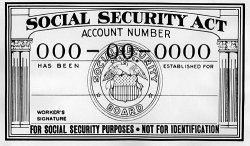 7. Social Security Numbers are issued by the UN through the IMF.
The Application for a Social Security Number is the SS5 form. The
Department of the Treasury (IMF) issues the SS5 not the Social
Security Administration. The new SS5 forms do not state who or what
publishes them, the earlier SS5 forms state that they are Department
of the Treasury forms. You can get a copy of the SS5 you filled out by
sending form SSA-L996 to the SS Administration. (20 CFR chapter 111,
subpart B 42 2.103 (b) (2) (2) Read the cites above)
7. Social Security Numbers are issued by the UN through the IMF.
The Application for a Social Security Number is the SS5 form. The
Department of the Treasury (IMF) issues the SS5 not the Social
Security Administration. The new SS5 forms do not state who or what
publishes them, the earlier SS5 forms state that they are Department
of the Treasury forms. You can get a copy of the SS5 you filled out by
sending form SSA-L996 to the SS Administration. (20 CFR chapter 111,
subpart B 42 2.103 (b) (2) (2) Read the cites above) 12. The UN is a One World Super Government.
12. The UN is a One World Super Government. 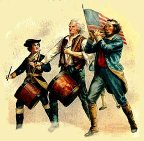 18. The most powerful court in America is not the United States Supreme Court but, the Supreme Court of Pennsylvania. (42 Pa.C.S.A. 502)
18. The most powerful court in America is not the United States Supreme Court but, the Supreme Court of Pennsylvania. (42 Pa.C.S.A. 502)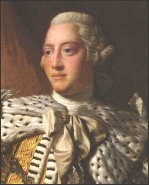 war. (Treaty at Versailles July 16, 1782, Treaty of Peace 8 Stat 80)
war. (Treaty at Versailles July 16, 1782, Treaty of Peace 8 Stat 80)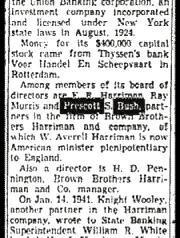 father of George HW Bush and grandfather of George W. Bush, funded both sides of World War II. The Bush family have been traitors to the American citizens for decades.
father of George HW Bush and grandfather of George W. Bush, funded both sides of World War II. The Bush family have been traitors to the American citizens for decades. 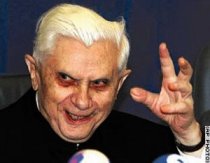 Society
for Propagating the Gospel, &c. V. New Haven 8 Wheat 464, Treaty
of Peace 8 Stat 80, IRS Publication 6209, Articles of Association
October 20, 1774.)
Society
for Propagating the Gospel, &c. V. New Haven 8 Wheat 464, Treaty
of Peace 8 Stat 80, IRS Publication 6209, Articles of Association
October 20, 1774.)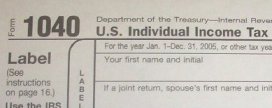 53-54)
53-54)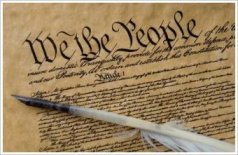 pg 99. Websters 1828 dictionary for definition of Estate.)
pg 99. Websters 1828 dictionary for definition of Estate.)